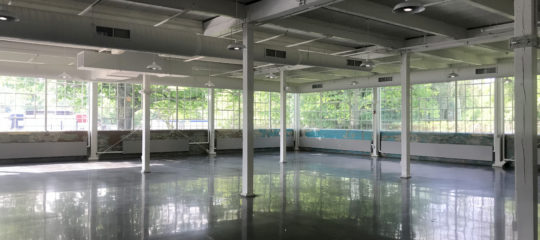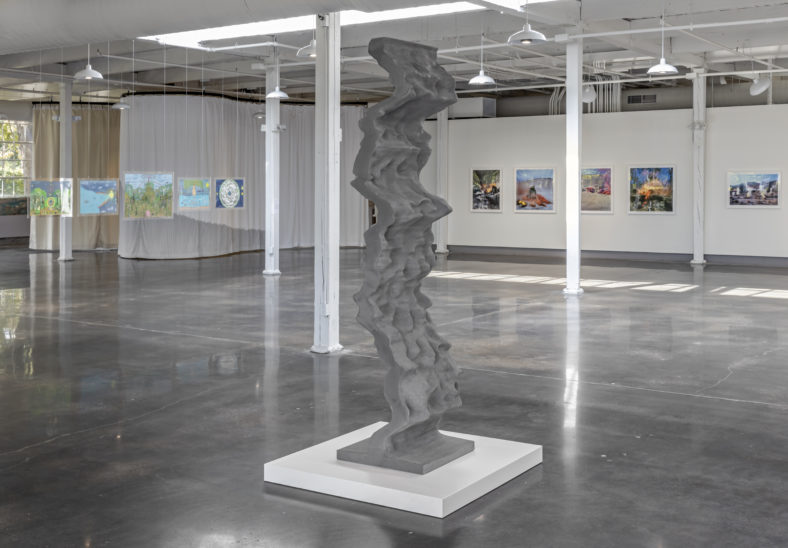September 21 – December 1, 2019
In The Flow Between Hard Places, the undulating edges of this monumental sculpture represent the sound waves created in uttering the word pasapkedjinawong (“the river that passes between the rocks”) in Anishinaabemowin, as spoken by Anishnaabe Elder Rose Wawatie-Beaudoin. A river is constantly in motion—a symbol for the power of nature and the passage of time. Monnet points to a critical historic moment one hundred years ago when Chief Pakinawatik from Kitigan Zibi (Maniwaki) travelled 600 kilometres through waterways to Toronto with sixty other Algonquins to request from the Office of the Governor General that parts of their traditional territory be returned.
Commissioned by the Toronto Biennial of Art and made possible with the generous support of the RBC Emerging Canadian Artist Program.
Learn more about Caroline Monnet’s practice by listening to the Short Format series on the Toronto Biennial of Art Podcast. Interviewed by Aliya Pabani, episode 1 with Monnet is is available HERE.
Bio
Caroline Monnet (Anishinaabe-French, born in 1985, Ottawa, Canada) is a multidisciplinary artist from Outaouais, Canada. She studied sociology and communication at the University of Ottawa and the University of Granada before working in visual arts and film. Caroline’s work has been viewed at the Palais de Tokyo, Paris; Haus der Kulturen der Welt, Berlin; the Toronto International Film Festival, Toronto; Cannes Film Festival, Cannes; the Whitney Biennial, New York; and the National Gallery of Canada, Ottawa. She is a recipient of the 2021 Hopper Prize; the 2020 Pierre-Ayot Award; the 2020 Sobey Art Award; and the 2017 Hnatyshyn Foundation REVEAL Indigenous Art Awards.
Hear Caroline Monnet on episode 1 of the Toronto Biennial of Art Podcast “Short Format”, available on Apple Podcasts, Google Podcasts, and Spotify.
Exhibition Site
Small Arms Inspection Building (2019)
Small Arms Inspection Building was originally part of a large munitions plant built in 1940 before it was acquired and renovated as an art centre by the City of Mississauga in 2018. With its female dominated workforce, Small Arms Limited manufactured thousands of rifles daily for the Canadian and Allied forces in WWII. In 1990, the TRCA conducted an environmental audit of the site, revealing the presence of polychlorinated biphenyl, volatile organic compounds, and combustible gases across nineteen acres. More than 70,000 tons of contaminated radioactive soil was removed to eventually transform the Arsenal Lands into a park.

1352 Lakeshore Road East
Mississauga ON
L5E 1E9



